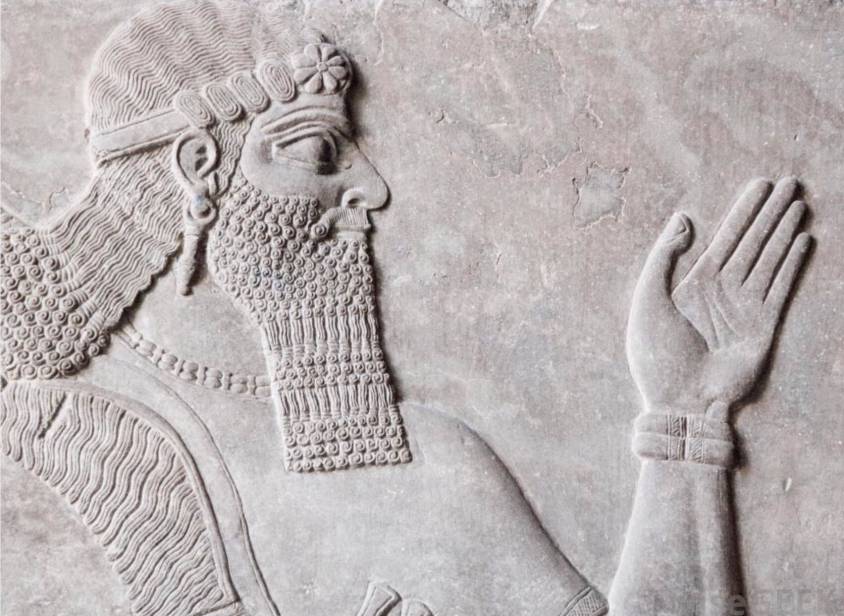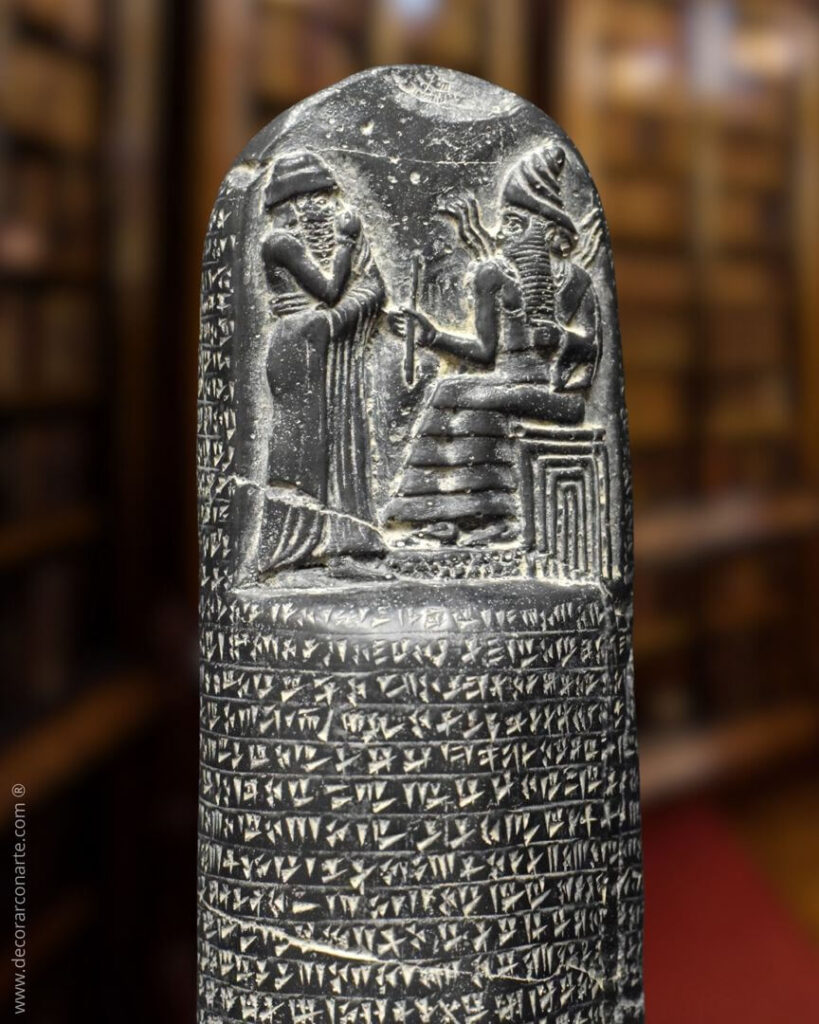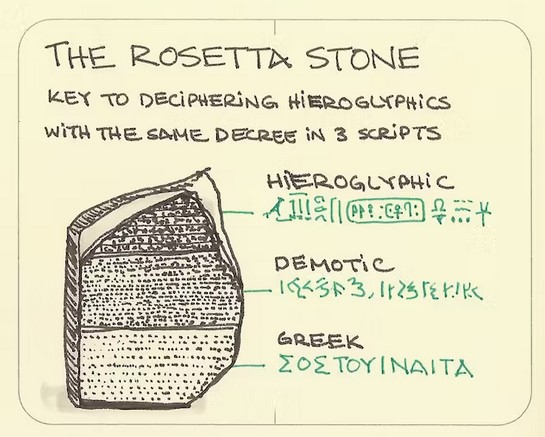Étiquette : Nehemiah
The ancient practice of debt cancellation


While anyone with a modicum of rationality knows that a huge proportion of the world’s debts are absolutely unpayable, it’s a fact that today any debt cancellation, however odious or illegitimate, remains taboo.
By Karel Vereycken, December 2020.
Debt repayment is presented by heads of state and government, central banks, the IMF and the mainstream press as imperative, inevitable, indisputable, compulsory. Citizens have elected their governments, so they must resign themselves to paying the debt. For not to pay is more than violating a symbol: it is to exclude oneself from civilization, and to renounce in advance any new credit that is granted only to « good payers ». What counts is not the effectiveness of the act, but the expression of one’s « good faith », i.e. one’s willingness to submit to the strongest. The only possible discussion is how to modulate the distribution of the necessary sacrifices.
It seems that the ultra-liberal, monetarist model that has been surreptitiously imposed on us is that of the Roman Empire: zero debt for states and cities, and no debt forgiveness for citizens!
In his treatise on Duties (De officiis), written in 44-43, Cicero, who had just quelled a revolt by people demanding a debt remission, justifies the radical nature of his policy towards indebtedness:

« What does the establishment of new debt accounts [i.e., remission] mean, if not that you buy land with my money, that you have this land, and that I don’t have my money? That’s why we have to make sure there are no debts, which can harm the state. There are many ways of avoiding it, but if there are debts, not in such a way that the rich lose their property and the debtors acquire the property of others. Indeed, nothing maintains the State more strongly than good faith (fides), which cannot exist if there is no need to pay one’s debts. Never has anyone acted more forcefully to avoid paying their debts than under my Consulate. It was attempted by men of all kinds and ranks, with weapons in hand, and by setting up camps. But I resisted them in such a way that this entire evil was eliminated from the State. »
What has been carefully concealed is that another human practice has also existed: moratoria, partial and even generalized debt cancellations have taken place repeatedly throughout history and were carried out according to different contexts.
Often, proclamations of generalized debt cancellation were the initiative of self-preservation-minded rulers, aware that the only way to avoid complete social breakdown was to declare a « washing of the shelves » – those on which consumer debts were inscribed – cancelling them to start afresh.
The American anthropologist David Graeber, in Debt, the first 5000 years (2011), pointed out that the first word we have for « freedom » in any human language is Sumerian amargi, meaning freed from debt and, by extension, freedom in general, the literal meaning being « return to the mother » insofar as, once debts were cancelled, all debt slaves could return home.
Debt cancellations were sometimes the result of bitter social struggles, wars and crises. What is certain is that debt has never been a detail of history.
David Graeber sums it up:
« For millennia, the struggle between rich and poor has largely taken the form of conflicts between creditors and debtors – disputes over the justice or injustice of interest payments, peonage, amnesty, property seizure, restitution to the creditor, confiscation of sheep, seizure of vineyards and the sale of the debtor’s children as slaves. And over the last 5,000 years, with remarkable regularity, popular insurrections have begun in the same way: with the ritual destruction of debt registers – tablets, papyri, ledgers or other media specific to a particular time and place. (After which, the rebels generally attacked cadastres and tax registers.) »
And as the great ancient scholar Moses Finley was fond of saying,
« All revolutionary movements have had the same program: cancellation of debts and redistribution of land. »
Let us now examine some historical precedents for voluntary debt forgiveness.
Debt cancellation in Mesopotamia

The earliest known debt cancellation was proclaimed in Mesopotemia by Entemena of Lagash c. 2400 BCE.
One of his successors, Urukagina, who was the last ruler of the 1st Dynasty of Lagash, is known for his code of rules that includes debt cancelation.
Urukagina’s code is the first recorded example of government reform, seeking to achieve a higher level of freedom and equality by limiting the power of priesthood and a usurous land-owner oligarchy. Usury and seizure of property for debt payment were outlawed. « The widow and the orphan were no longer at the mercy of the powerful man ».
Similar measures were enacted by later Sumerian, Babylonian and Assyrian rulers of Mesopotamia, where they were known as « freedom decrees » (ama-gi in Sumerian).
This same theme exists in an ancient bilingual Hittite–Hurrian text entitled « The Song of Debt Release ».
The reign of Hammurabi, King of Babylon (located in present-day Iraq), began in 1792 BC and lasted 42 years.
The inscriptions preserved on a 2-meter-high stele in the Louvre are known as the « Hammurabi Code ». It was placed in a public square in Babylon. If it is a long, very severe code of justice, prescribing the application of the law of retaliation (« an eye for an eye, a tooth for a tooth »), its epilogue nevertheless proclaims that « the powerful cannot oppress the weak, justice must protect the widow and the orphan (…) in order to render justice to the oppressed ».

Hammurabi, like the other rulers of the Mesopotamian city-states, repeatedly proclaimed a general cancellation of citizens’ debts to public authorities, their high officials and dignitaries.
Thanks to the deciphering of numerous documents written in cuneiform, historians have found indisputable evidence of four general debt cancellations during Hammurabi’s reign (at the beginning of his reign in 1792, in 1780, in 1771 and in 1762 BC).
Babylonian society was predominantly agricultural. The temple and palace, and the scribes and craftsmen they employed, depended for their sustenance on a vast peasantry from whom land, tools and livestock were rented.
In exchange, each farmer had to offer part of his production as rent. However, when climatic hazards or epidemics made normal production impossible, producers went into debt.
The inability of peasants to repay debts could also lead to their enslavement (family members could also be enslaved for debt).
The Hammurabi Code obviously wanted to change this. Article 48 of the Code of Laws states:
« Whoever owes a loan, and a storm buries the grain, or the harvest fails, or the grain does not grow for lack of water, need not give any grain to the creditor that year, he wipes the tablet of the debt in the water and pays no interest for that year. »
This ideal of justice is notably supported by the terms kittum, « justice as the guarantor of public order », and « justice as the restoration of equity. » It was asserted in particular during the « edicts of grace » (designated by the term mîsharum), a general remission of public and private debts in the kingdom (including the release of people working for another person to repay a debt).
Thus, to preserve the social order, Hammurabi and the ruling power, acting in their own interests and in the interests of society’s future, periodically agreed to cancel all debts and restore the rights of peasants, in order to save the threatened old order in times of crisis, or as a kind of reset at the beginning of a sovereign’s reign.
Proclamations of general debt cancellation are not confined to the reign of Hammurabi; they began long before him and continued afterwards. There is evidence of debt cancellations as far back as 2400 BC, six centuries before Hammurabi’s reign, in the city of Lagash (Sumer); the most recent date back to 1400 BC in Nuzi.
In all, historians have accurately identified some thirty general debt cancellations in Mesopotamia between 2400 and 1400 BC.
These proclamations of debt cancellation were the occasion for great festivities, usually during the annual spring festival. Under the Hammurabi dynasty, the tradition of destroying the tablets on which debts were written was established.
In fact, the public authorities kept precise accounts of debts on tablets kept in the temple. Hammurabi died in 1749 BC after a 42-year reign. His successor, Samsuiluna, cancelled all debts to the state and decreed the destruction of all debt tablets except those relating to commercial debts.
When Ammisaduqa, the last ruler of the Hammurabi dynasty, acceded to the throne in 1646 BC, the general cancellation of debts he proclaimed was very detailed. The aim was clearly to prevent certain creditors from taking advantage of certain families. The annulment decree stipulates that official creditors and tax collectors who have expelled peasants must compensate them and return their property, on pain of execution.
After 1400 BC, no deeds of debt cancellation have been found, as the tradition has been lost. Land was taken over by large private landowners, and debt slavery returned.
In Egypt
In Ancient Egypt interest-bearing debt did not exist for most of its history. When it started spreading in the Late Period, the rulers of Egypt regulated it and a number of debt remissions are known to have occurred during the Ptolemaic era, including the one whose proclamation was inscribed on the Rosetta Stone.
Now on display at the British Museum in London, the « Rosetta Stone » was discovered on July 15, 1799 at el-Rashid (Rosetta) by one of Napoleon’s soldiers during the Egyptian campaign. It contains the same text written in hieroglyphs, demotic (Egyptian cursive script) and Greek, giving Jean-François Champollion (1790-1832) the key to the passage from one language to another.
This was a decree issued by Pharaoh Ptolemy V on March 27, 196 BC, announcing an amnesty for debtors and prisoners. The Greek Ptolemy dynasty that ruled Egypt institutionalized the regular cancellation of debts.
It was perpetuating known practices, since Greek texts mention that Pharaoh Bakenranef, who ruled Lower Egypt from c. 725 to 720 BC, had promulgated a decree abolishing debt slavery and condemning debt imprisonment.

TRANSCRIPTION OF THE PHARAOH’S DECREE
ON THE ROSETTA STONE:
Assembled the Chief Priests and Prophets there and those who enter the inner temple to worship the gods, and the Fanbearers and Sacred Scribes and all the other priests of the temples of the earth who have come to meet the king at Memphis, for the feast of the Assumption of PTOLEMEE, THE LIVING FOREVER, THE BELOVED OF PTAH, THE GOD EPIPHANES EUCHARISTOS, the successor of his father, All assembled in the temple of Memphis on this day when it was declared:
“that King PTOLEMEE, THE LIVING FOREVER, THE BELOVED OF PTAH, THE GOD EPIPHANES EUCHARISTOS, the son of King Ptolemy and Queen Arsinoe, the Philopator Gods, both benefactors of the temple and those who dwell therein, as well as their subjects, being a god from a god and the goddess loves Horus the son of Isis and Osiris who avenged his father Osiris by being favorably disposed towards the gods, delivered to the revenues of the temples silver and corn and undertook much expenditure for the prosperity of Egypt, and the maintenance of the temples, and was generous to all out of his own resources ;
“and exempted them from some of the revenues and taxes levied in Egypt and alleviated others so that his people and all others could be in prosperity during his reign ;
“and that he cleared the debts to the crown for many Egyptians and for the rest of the kingdom; ”
The existence of this decree therefore confirms that the practice had existed for many centuries.
The Greek historian Diodorus Siculus (Ist Century BC) provides the following rationale for abolishing the debt bondage by Pharaoh Bakenranef:
« For it would be absurd… that a soldier, at the moment perhaps when he was setting forth to fight for his fatherland, should be haled to prison by his creditor for an unpaid loan, and that the greed of private citizens should in this way endanger the safety of all »
As one can see here, one of the very pragmatic reasons for debt cancellation was that the Pharaoh wanted to have a peasantry capable of producing enough food and, if need be, able to take part in military campaigns. For both of these reasons, it was important to ensure that peasants were not expelled from their lands under the thumb of creditors.
In another part of the region, the Assyrian emperors of the 1st millennium BC also adopted the tradition of debt cancellation.
In Greece: Solon of Athens

In Greece, the Athenian lawmaker Solon (c. 638 BC–558 BC), in order to rectify the widespread serfdom and slavery that had run rampant by the 6th century BCE, introduced a set of laws nown as the Seisachtheia introducing debt relief.
Before Solon, according to the account of the Constitution of the Athenians attributed to Aristotle, debtors unable to repay their creditors would surrender their land to them, then becoming hektemoroi, i.e. serfs who cultivated what used to be their own land and gave one sixth of produce to their creditors. However, should the debt exceed the perceived value of debtor’s total assets, then the debtor and his family would become the creditor’s slaves as well. The same would result if a man defaulted on a debt whose collateral was the debtor’s personal freedom. The fight for debt relief and the fight to abolish slavery were in practice identical.
Solon’s seisachtheia laws immediately cancelled all outstanding debts, retroactively emancipated all previously enslaved debtors, reinstated all confiscated serf property to the hektemoroi, and forbade the use of personal freedom as collateral in all future debts. The laws instituted a ceiling to maximum property size – regardless of the legality of its acquisition (i.e. by marriage), meant to prevent excessive accumulation of land by powerful families.
In the Torah and Old Testament
Social justice, particularly in the form of forgiving debts that shackle the poor to the rich, is a leitmotif in the history of Judaism. It was practiced in Jerusalem in the 5th century BC.
The writing of the Torah was completed at this time. Deuteronomy, 15 states:

The Year for Canceling Debts
15 At the end of every seven years you must cancel debts.
2 This is how it is to be done: Every creditor shall cancel any loan they have made to a fellow Israelite. They shall not require payment from anyone among their own people, because the Lord’s time for canceling debts has been proclaimed.
3 You may require payment from a foreigner, but you must cancel any debt your fellow Israelite owes you.
4 However, there need be no poor people among you, for in the land the Lord your God is giving you to possess as your inheritance, he will richly bless you,
5 if only you fully obey the Lord your God and are careful to follow all these commands I am giving you today.
6 For the Lord your God will bless you as he has promised, and you will lend to many nations but will borrow from none. You will rule over many nations but none will rule over you.
7 If anyone is poor among your fellow Israelites in any of the towns of the land the Lord your God is giving you, do not be hardhearted or tightfisted toward them.
8 Rather, be openhanded and freely lend them whatever they need.
9 Be careful not to harbor this wicked thought: “The seventh year, the year for canceling debts, is near,” so that you do not show ill will toward the needy among your fellow Israelites and give them nothing. They may then appeal to the Lord against you, and you will be found guilty of sin.
10 Give generously to them and do so without a grudging heart; then because of this the Lord your God will bless you in all your work and in everything you put your hand to.
11 There will always be poor people in the land. Therefore I command you to be openhanded toward your fellow Israelites who are poor and needy in your land.
Thus, the Israelites were obliged to free Hebrew slaves who had sold themselves to them for debt, and to offer them some of the produce of their small livestock, their fields and their wine presses, so that they would not return home empty-handed.
As the law is too rarely applied, Leviticus reaffirms it by modulating it:
The Year of Jubilee
8 “‘Count off seven sabbath years—seven times seven years—so that the seven sabbath years amount to a period of forty-nine years.
9 Then have the trumpet sounded everywhere on the tenth day of the seventh month; on the Day of Atonement sound the trumpet throughout your land.
10 Consecrate the fiftieth year and proclaim liberty throughout the land to all its inhabitants. It shall be a jubilee for you; each of you is to return to your family property and to your own clan.
11 The fiftieth year shall be a jubilee for you; do not sow and do not reap what grows of itself or harvest the untended vines.
12 For it is a jubilee and is to be holy for you; eat only what is taken directly from the fields.
13 “‘In this Year of Jubilee everyone is to return to their own property.
14 “‘If you sell land to any of your own people or buy land from them, do not take advantage of each other.
15 You are to buy from your own people on the basis of the number of years since the Jubilee. And they are to sell to you on the basis of the number of years left for harvesting crops.
16 When the years are many, you are to increase the price, and when the years are few, you are to decrease the price, because what is really being sold to you is the number of crops.
17 Do not take advantage of each other, but fear your God. I am the Lord your God.

Today, some will tell you that under these conditions, a year before the jubilee date, credit would necessarily be scarce and expensive, and that debt would thus find its limit!
This is a mistake, because to ensure that the law is followed, the codes describe in detail how purchases and sales of goods between private individuals must be carried out according to the number of years elapsed since the previous jubilee (i.e., the number of years remaining before the goods must be returned to their previous owner).
Another passage, this time from the prophet Jeremiah, vividly illustrates the scope of the law on the remission of debts.

Faced with the advance of enemy armies towards Jerusalem in 587 B.C., Jeremiah supports, in God’s name, the undertaking of King Zedekiah (then ruler of the Kingdom of Judea), who demands the immediate release of all those enslaved for debt from the powerful forces of his kingdom (Jer. 34:8-17).
Jeremiah forcefully recalls the ancient demand for the freeing of slaves… which the king, in fact, needs to patriotically reunite the social classes before the battle, and give himself sufficient troops free of all servile obligations!

A passage in the Book of (the prophet) Nehemiah (447 BC), the governor of Persian Judea under Artaxerxes I of Persia (465–424 BC), influenced by the ancient Mesopotamian tradition, also proclaims the cancellation of debts owed by indebted Jews to their rich compatriots.
The social situation Nehemiah discovered in Judea was appalling. To remedy the problem, Nehemiah placed the law of debt relief within a religious framework, the Covenant with Yahweh. From then on, it was God himself who commanded the forgiveness of debts and the liberation of slaves and their land, for the land belonged to God alone.
Nehemiah Helps the Poor
« Now the men and their wives raised a great outcry against their fellow Jews.
2 Some were saying, “We and our sons and daughters are numerous; in order for us to eat and stay alive, we must get grain.”
3 Others were saying, “We are mortgaging our fields, our vineyards and our homes to get grain during the famine.”
4 Still others were saying, “We have had to borrow money to pay the king’s tax on our fields and vineyards.
5 Although we are of the same flesh and blood as our fellow Jews and though our children are as good as theirs, yet we have to subject our sons and daughters to slavery. Some of our daughters have already been enslaved, but we are powerless, because our fields and our vineyards belong to others.”
6 When I heard their outcry and these charges, I was very angry.
7 I pondered them in my mind and then accused the nobles and officials. I told them, “You are charging your own people interest!” So I called together a large meeting to deal with them
8 and said: “As far as possible, we have bought back our fellow Jews who were sold to the Gentiles. Now you are selling your own people, only for them to be sold back to us!” They kept quiet, because they could find nothing to say.
9 So I continued, “What you are doing is not right. Shouldn’t you walk in the fear of our God to avoid the reproach of our Gentile enemies?
10 I and my brothers and my men are also lending the people money and grain. But let us stop charging interest!
11 Give back to them immediately their fields, vineyards, olive groves and houses, and also the money you are charging them—one percent of the money, grain, new wine and olive oil.”
12 “We will give it back,” they said. “And we will not demand anything more from them. We will do as you say.”
If we add to these passages the countless verses forbidding the lending of interest to fellow human beings and the taking of property as collateral, we get an idea of what the Israelites in the land of Canaan had put in place to try and maintain a certain social equilibrium.
Alas, in the first century AD, debt forgiveness and the freeing of slaves from debt were swept away from all Near Eastern cultures, including Judea.
The social situation there had deteriorated to such an extent that Rabbi Hillel was able to issue a decree requiring debtors to sign away their right to debt forgiveness.
In the Bible and New Testament
What happened to debt forgiveness in the New Testament?
While the Acts of the Apostles and the writings of the Fathers of the Church sometimes express a great docility, Jesus’ position on the forgiveness of debts, as reported repeatedly and most forcefully in Luke’s Gospel, chapter 4:16-21, appears to be marked by a revolutionary prophetic breath.
Luke places the passage at the beginning of Jesus’ public life. He makes it a key to everything that follows.
16 Jesus went to Nazareth, where he had been brought up, and on the Sabbath day he went into the synagogue, as was his custom. He stood up to read,
17 and the scroll of the prophet Isaiah was handed to him. Unrolling it, he found the place where it is written:
18 “The Spirit of the Lord is on me,
because he has anointed me
to proclaim good news to the poor.
He has sent me to proclaim freedom for the prisoners
and recovery of sight for the blind,
to set the oppressed free,
19 to proclaim the year of the Lord’s favor.”
20 Then he rolled up the scroll, gave it back to the attendant and sat down. The eyes of everyone in the synagogue were fastened on him.
21 He began by saying to them, “Today this scripture is fulfilled in your hearing.”

Let’s not forget that the « year of the Lord’s favor (Jubilee Year) » to which he called, demanded at once rest for the land, forgiveness of debts and the liberation of slaves.
In the midst of the slave-owning Roman Empire, which fiercely rejected the concept of debt forgiveness, Jesus’ declaration could only be seen as a declaration of war on the ruling system.
Before he was arrested, Jesus made a highly symbolic material gesture: he forcefully overturned the tables of the money-changers in the Jerusalem temple. For the Jewish high priests and the Roman authorities, this was too much.
Peace of Westphalia of 1648
In 1648, after five years of negotiations, led by the French diplomat Abel Servien on the instructions of Cardinal Mazarin, the “Peace of Westphalia” was signed, putting an end to the Thirty Years’ War (1618-1648).
Long before the UN Charter, 1648 made national sovereignty, mutual respect and the principle of non-interference the foundations of international law.
But there was more. As we have documented, the peace deal also included the cancelation of debts that had become the very reason for continuing the war.
Unpayable, unsustainable and illegitimate debts, interests, bonds, annuities and financial claims, explicitly identified as fueling a dynamic of perpetual war, were examined, sorted out and reorganized, most often through the cancellation of debts (articles 13 and 35, 37, 38 and 39), through moratoria or debt rescheduling according to specific timetables (article 69).
Article 40 concludes that debt cancellations will apply in most cases, “and yet the Sums of Money, which during the War have been exacted bona fide, and with a good intent, by way of Contributions, to prevent greater Evils by the Contributors, are not comprehended herein. » (Implying that these debts would have to be honored.)
Finally, looking to the future, for Commerce to be “reestablished”, the treaty abolished many tolls and customs established by “private” authorities for they were obstacles to the exchange of physical goods and know-how and hence to mutual development. (Art. 69 and 70).

TREATY OF WESTPHALIA (1648)
Art. 13:
“Reciprocally, the Elector of Bavaria renounces entirely for himself and his Heirs and Successors the Debt of Thirteen Millions, as also all his Pretensions in Upper Austria; and shall deliver to his Imperial Majesty immediately after the Publication of the Peace, all Acts and Arrests obtain’d for that end, in order to be made void and null.”
Art. 35:
“That the Annual Pension of the Lower Marquisate, payable to the Upper Marquisate, according to former Custom, shall by virtue of the present Treaty be entirely taken away and annihilated; and that for the future nothing shall be pretended or demanded on that account, either for the time past or to come.”
During the Cold War
In the United States, Eisenhower was elected in November 1952.
His Secretary of State, John Foster Dulles, otherwise an evil man, noted that, despite the Marshall Plan, Europe, still burdened by a mountain of debt dating from before the First World War and the Treaty of Versailles, was unable to regain momentum.
So much so that it is in danger of turning to the USSR!
Action was called for. In 1953, under the leadership of German banker Hermann Abs, a former Deutsche Bank executive, a major conference was organized in London.
It was decided to write off 66% of Germany’s 30 billion marks in debt.
It was wisely agreed that annual repayments of German debt should never exceed 5% of export earnings. Those wishing to have their debts repaid by Germany should instead buy its exports, enabling it to honor its debts.
In other words, nothing like the madness recently imposed on Greece to « save » the euro!
Although this was done in the name of geopolitical principles, i.e. « in favor of some » but « against others », once again, it was in the name of a better future, i.e. a Europe capable of being the showcase of capitalism in the face of Moscow, that we were able to shed the weight of the past.